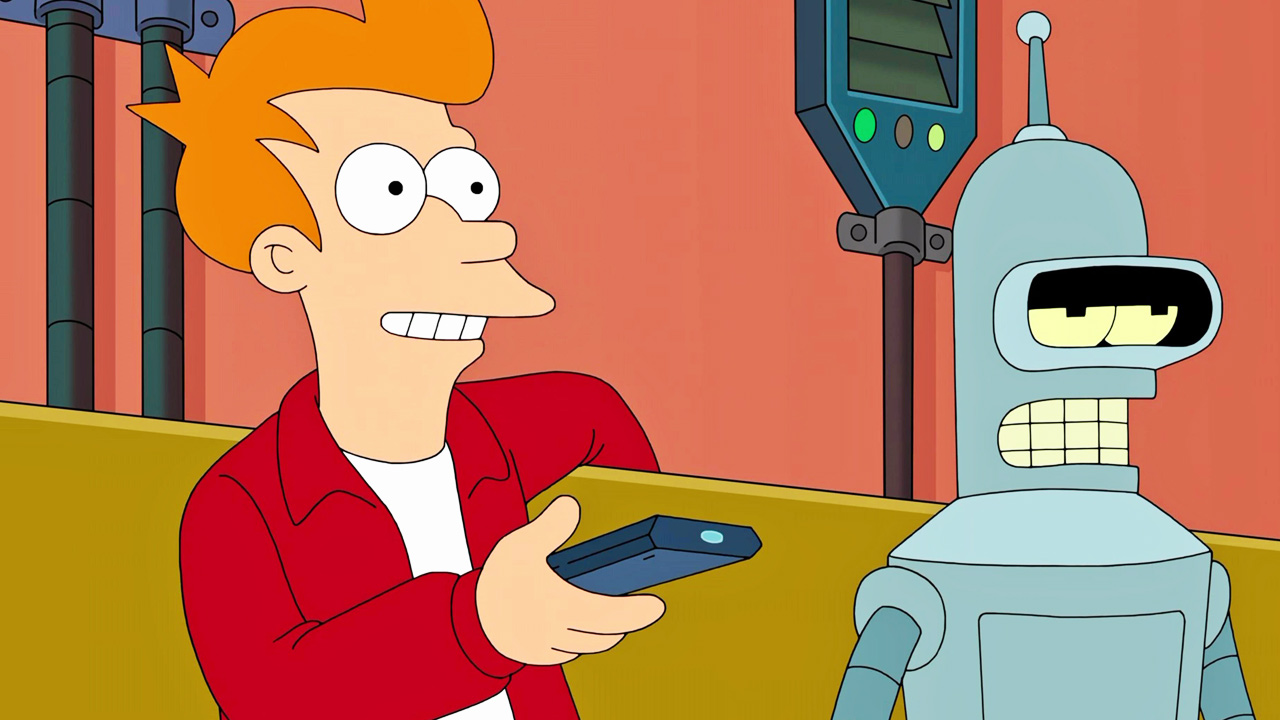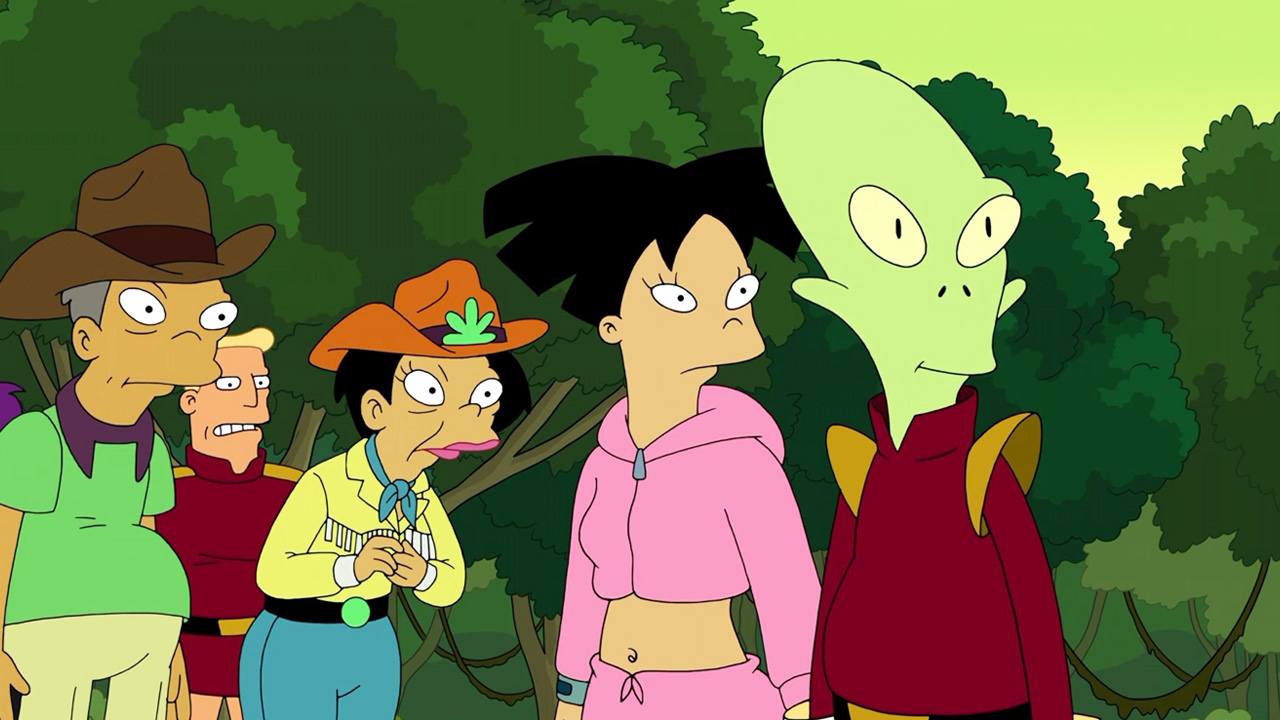Watching new Futurama is like catching up with an old mate
It doesn’t reinvent the wheel – and there’s nothing wrong with that.

Fry, Leela, Bender and the rest of the Futurama gang have bounced back into the zeitgeist with the beloved show’s first new episodes in a decade. Luke Buckmaster has good news for fans: it doesn’t drop the ball.
What’s a decade between old friends? For fans of Futurama, watching the first episodes to land in 10 years will feel like catching up with a good pal you haven’t seen for eons. One appreciates the simple pleasures of their company, and the wall of time separating then and now crumbles away.
The new season’s inaugral ep hits a pleasing tone, neither ignoring the long gap between drinks nor making too much of it. In fact it begins with a literal reboot. When we return to the 31st century’s New New York, which in case you don’t remember is situated above the ruins of the old New York, time is frozen. Birds and flying vehicles are suspended in midair; people, aliens and robots are locked in place on the street like statues; and the beer Bender (voiced by John DiMaggio) is drinking is caught in the air between his mouth and the bottle.
Professor Farnsworth (voiced by Billy West) explains via voiceover that the universe has buggered up and needs to be reset to the instant before time stopped. When Farnsworth does this, everything is reactivated and a cigar-puffing Bender announces: “we’re back, baby.” This of course declares both the return of the characters and the show itself, signifying a revival without putting it in highlighter pen.
This episode’s narrative has a satirical underlayer, taking a swing at the entertainment industry’s “more of everything” philosophy. Loveable doofus Fry (Billy West again) resolves to watch every TV show every made, which is achievable by using a headset-like device that drills into his visual cortex. He’s warned not to use it so of course he uses it. One quirky plot twist later, Fry will die if he runs out of content to watch—so his one-eyed girlfriend Leela (voiced by Katey Sagal) enters television production, making a show that runs for one hour every hour, with no beginning and no end.
I couldn’t help but think of Nothing, Forever, the procedurally generated Seinfeld parody currently airing continuously on Twitch. And that was before a joke arrives that seems to reference that experimental show’s transphobic joke controversy. A robot, performing stand-up comedy in front of a crowd of other robots, asks: “What is the deal with non-binary robots?” The audience boos. The robot responds: “Wow. PC crowd.”

Jokes like this are significant, because they show the writers are still serious about delivering adult humour with some edginess—which has been an important staple of Futurama from the beginning. Countless gags have caught audiences off-guard with gallows humour. Fans may have forgotten that in the very first episode, when Fry accidentally cryogenically freezes himself and wakes up one millennia later, he meets the rambunctious and incorrigible Bender when waiting in line to use what he believes is a phone booth. The protagonist is mortified to discover it’s actually a suicide booth. Preettttttty dark.
By the time Futurama had entered its previous season, circa 2013, the quality had dipped and the lustre was gone, though it retained its capacity for dark humour (in one joke a human police officer says: “I need a drink.” His robot colleague responds: “Nah, we’re on the job. Let’s just go pepper spray some homeless families”). Bender has always been the easiest path to naughty comedy, but far from the only one. In the second episode of the new season, after Amy (Lauren Tom) and her alien beau Kif (Maurice LaMarche) have babies, the equivalent of a circumcision ritual takes place, the tails of their little green offspring cut off and dropped into a bucket. Lobster-like creature Zoidberg (West yet again) generously volunteers to dispose of this medical waste, “with a little butter and lemon.”
I also dug a gag at the beginning of episode four, with Leela walking her pet Nibbler in a park. A man walking his dog asks: “is your dog friendly, or just ugly?” She responds: “very friendly.” Then Nibbler eats the other dog. Leela adds, “but he’s not a dog.”
By the third episode (this review encompasses the first six), which is set in a Westworld-esque simulation of the Wild West, it’s clear the new season is on solid footing. It’s just as good as most of the old episodes. It hasn’t dropped the ball nor accelerated in exciting new directions. But it’s pleasantly dispensable and occasionally laugh-out-loud funny. There’s that old saying, “nostalgia isn’t what it used to be.” Thankfully, in this instance, the future is.























